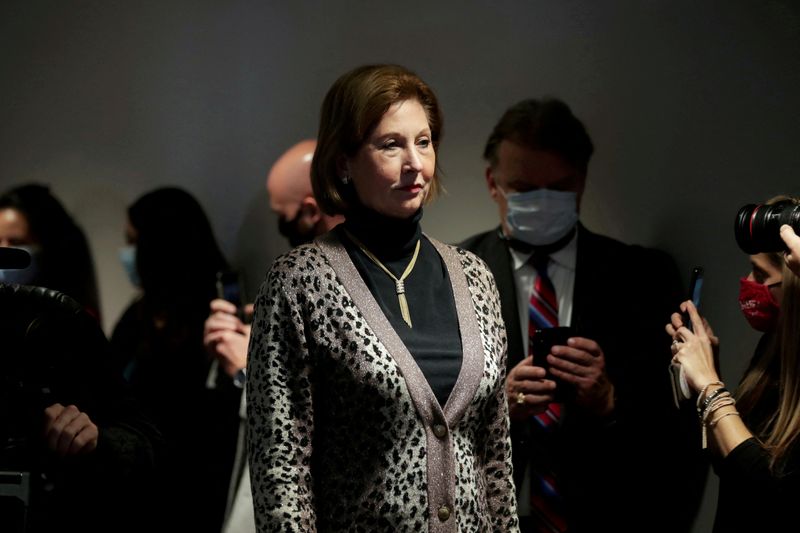By Jan Wolfe
WASHINGTON (Reuters) - Texas legal regulators have asked a judge to discipline attorney Sidney Powell for filing lawsuits they say were frivolous in support of former President Donald Trump's false claims of election fraud.
The disciplinary action is a major development in what has become a nationwide effort to punish pro-Trump lawyers who tried to overturn the November 2020 presidential election result, but is not a final finding of wrongdoing.
A Texas state court judge will hear the complaint and decide whether to impose a sanction and what that might be.
In the complaint made public on Tuesday, the State Bar of Texas Commission for Lawyer Discipline said Powell "had no reasonable basis" for filing lawsuits challenging President Joe Biden's victories in key battleground states.
"Respondent (Powell) had no reasonable basis to believe the lawsuits she filed were not frivolous," the complaint stated and called the suits a violation of a federal ethics rule requiring an attorney's due diligence before asserting claims in court.
Powell said in a statement that she looked forward to presenting evidence to clear her name.
"The Texas bar decision was totally expected, but it is an unfortunate and poor decision by the Bar," Powell said. "No lawyer could practice law under the rule they would set for me."
Powell represented Trump's campaign when he sought to overturn the election result. His campaign distanced itself from Powell after she claimed without evidence at a Nov. 19 news conference that electronic voting systems had switched millions of ballots to Biden.
In August, a federal judge in Michigan said an election lawsuit Powell filed in that state was frivolous.

"This lawsuit represents a historic and profound abuse of the judicial process," U.S. District Judge Linda Parker said in her decision, adding that the case "was never about fraud - it was about undermining the people's faith in our democracy and debasing the judicial process to do so."
Powell and lawyers with whom she worked have appealed that ruling, saying her conduct was ethical.